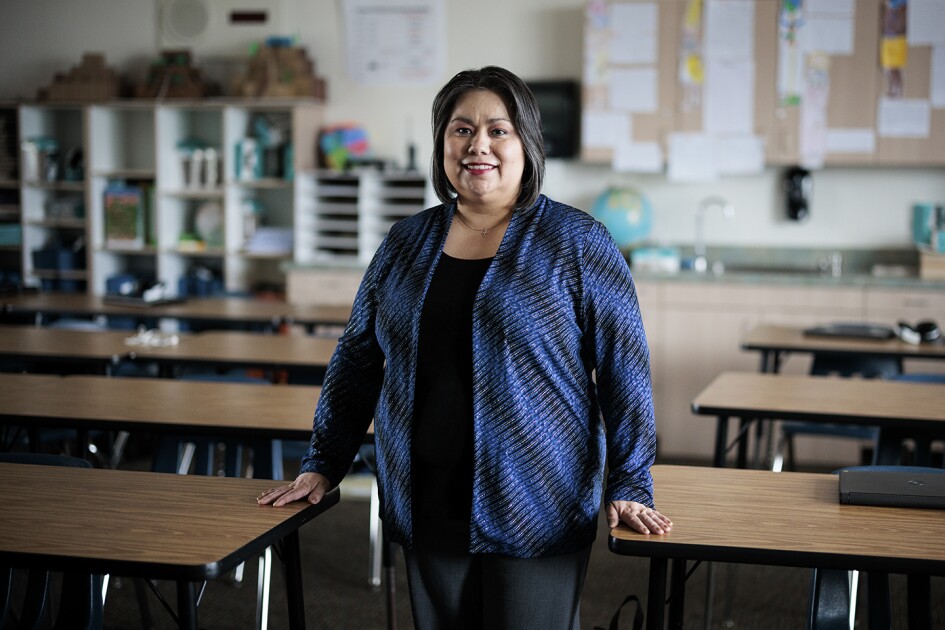
Pop quiz. Name the source of this quote:
“I most certainly would not advise anyone to go into teaching. Teachers are definitely not respected as they should be by parents or students.”
You might be tempted to think it’s from one of the many responses to Nancie Atwell’s recent comments about entering the teaching profession. In fact, it’s a quote from a teacher association president in a New York Times article titled “Teacher Morale Ebbing in Nation”—from 1947.
It turns out that teachers advising students to either avoid the profession, or at least to carefully consider what they’re getting into, is nothing new. In 1933, a Columbia professor was quoted in The Washington Post as telling newly minted graduates of Wilson Teachers College that they should only move forward if they truly loved the job: “If you don’t like teaching, if you don’t like children—then get out of teaching. ... Don’t wait until you get married, because for some teachers that’s a long time.” (This, of course, was back in the days when primary education was a field reserved for unmarried women.)
Then there’s the 1947 piece mentioned above, which reported that more than half of U.S. superintendents said that teacher morale was worse than before World War II, and 36 percent of “classroom leaders” said that they would discourage young people from becoming teachers.
Teachers quoted in the Times piece cited many grievances that today’s teachers would recognize, particularly a low wage ($37 a week!) and a lack of respect from the public. They also struggled with outdated equipment, overcrowding, and substandard facilities: “If we had electric lights we could do much more work here,” said one rural teacher. Not to mention era-specific troubles, like accusations of communist sympathies. All of this added up to difficulties with teacher recruitment and retention and a teacher shortage in many states.
Sound familiar?
Fast-forward to the ‘80s and the situation looked similar. Another New York Times article, from 1985, shows the results of a poll of over 1,300 teachers: “The survey found that only one-fourth of the teachers would wholeheartedly recommend teaching to a young person making a decision about a career. Slightly more than half said they would make the recommendation with major reservations and 22 percent said they would flatly advise against becoming a teacher.” Once again, teachers’ financial woes played a central role, with teachers saying the average salary ($23,345 per year) was more than $6,000 too low.
A 1999 Education Week commentary suggested something more like what Atwell has said: That teaching can be great, in the right school. James Nehring, a teacher and former principal at a Massachusetts charter, wrote how his school created a student-teacher ratio “unrivaled” by other public schools:
Consider the number of students a high school teacher must teach: 120? 150? If the essential joy of teaching comes from touching a child's soul, then we are miles from satisfaction, stretched as we are to simply learn all their names by December."
And of course, the Internet era has brought with it countless blog posts and articles in the past few years about why teaching just isn’t worth it anymore. Take, for example, a Tampa Bay Times piece called “Why I Stopped Encouraging Students to Become Teachers,” which calls out a “toxic environment” for public school teachers. Or “A Warning to Young People: Don’t Become a Teacher,” in the Huffington Post. Or ... well, you get the point.
For just as long, though, negative voices have been accompanied by positive ones. Over on Teacher in a Strange Land, Nancy Flanagan wrote that despite what it may seem, most veteran teachers aren’t really discouraging new teachers, but simply being honest. “In fact, we want you to become career teachers—not tried-it-and-ran temps—so we’re honoring you, by telling you the truth. Which is: this is not your mother’s profession.”
And even back in 1947, this was the case—despite the challenges, said one teacher quoted in the New York Times, “It’s the grandest work in the world.”
Image: A 1954 classroom in Australia. From the Public Record Office Victoria on Flickr/Creative Commons.
Library interns Rachel James and Connor Smith contributed research to this story.


